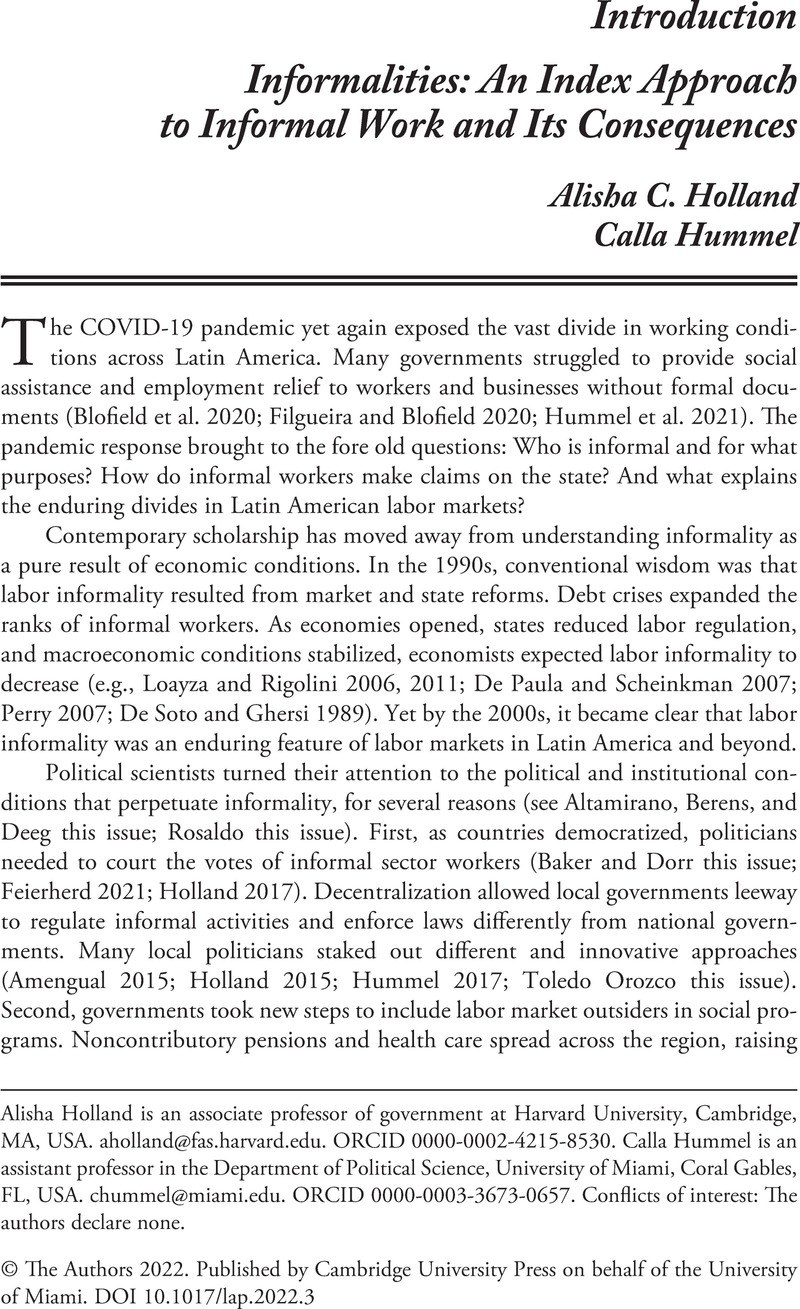Crossref Citations
This article has been cited by the following publications. This list is generated based on data provided by Crossref.
Merouani, Walid
and
Jawad, Rana
2022.
Political Attitudes and Participation among Young Arab Workers: A Comparison of Formal and Informal Workers in Five Arab Countries.
Social Sciences,
Vol. 11,
Issue. 11,
p.
503.
Gallien, Max
and
Boogaard, Vanessa van den
2023.
Formalization and its Discontents: Conceptual Fallacies and Ways Forward.
Development and Change,
Vol. 54,
Issue. 3,
p.
490.
Cifuentes-Cuadros, Alonso A.
Romero, Enzo
Caballa, Sebastian
Vega-Centeno, Daniela
and
Elias, Dante A.
2023.
The LIBRA NeuroLimb: Hybrid Real-Time Control and Mechatronic Design for Affordable Prosthetics in Developing Regions.
Sensors,
Vol. 24,
Issue. 1,
p.
70.
Miranda Sánchez, Paula
Inostroza Correa, Alejandra
and
Aparicio, Andrés
2023.
Care cooperatives in Uruguay, Argentina and Chile; a look at their hinderers and opportunities to achieve development.
REVESCO. Revista de Estudios Cooperativos,
Vol. 145,
Issue. ,
Gómez-Cruz, Nelson Alfonso
Anzola, David
Batz Liñeiro, Aglaya
and
Gong, Yue
2024.
Unveiling the intellectual structure of informality: Insights from the socioeconomic literature.
PLOS ONE,
Vol. 19,
Issue. 1,
p.
e0297577.
Gainza, Xabier
Espejo, Andrés
and
Livert, Felipe
2025.
The Right and the Politics of Labor Informality Enforcement.
Latin American Politics and Society,
p.
1.
Son, Keonhi
2025.
Discrepancy of social insurance between laws and practices: Implementation challenges of maternity leave in 73 low- and middle-income countries.
Global Social Policy,
Anyidoho, Nana Akua
Gallien, Max
Rogan, Michael
and
van den Boogaard, Vanessa
2025.
The taxed informal economy: Fiscal burdens and inequality in Accra.
World Development,
Vol. 187,
Issue. ,
p.
106879.



